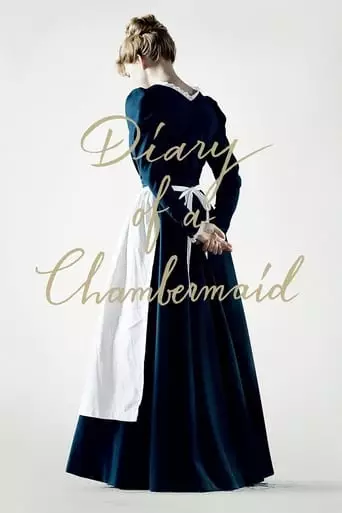
Diary of a Chambermaid (2015) Watch Online Free
In the late 19th century, a chambermaid from Paris relocates to a remote household in Provence, engages in trysts and finds herself enraptured with a coach driver.
Diary of a Chambermaid (2015), directed by Benoît Jacquot, is a French drama based on the 1900 novel Journal d’une Femme de Chambre by Octave Mirbeau. Set in a rural French household, the film follows Célestine, a young chambermaid who navigates the complex and oppressive dynamics of the household where she works.
The story begins with Célestine arriving at the Lanlaire estate to work for the family. She quickly learns that Madame Lanlaire is a cruel and domineering figure, while Monsieur Lanlaire is a lecherous man who makes unwelcome advances toward her. Célestine, however, is not one to be easily intimidated. She uses her intelligence and charm to manipulate her way through the rigid social structures of the household. As she grows more acquainted with the Lanlaires, she also befriends Joseph, the gardener, who harbors dark and disturbing views, particularly anti-Semitic sentiments.
Célestine’s interactions with the household are marked by a series of uncomfortable and revealing moments, as she faces the oppressive atmosphere of class and gender. The story delves into the manipulation and exploitation of the servants, and the power dynamics that govern their lives. As Célestine becomes more entangled with Joseph, she also contemplates the roles that sex, power, and morality play in her life.
The film’s narrative unfolds with a mix of subtle humor and dark drama, exploring themes of class struggle, sexual power, and the complexities of human nature. It presents a portrait of a society in moral decay, where the roles of women and servants are reduced to mere objects of exploitation.
Diary of a Chambermaid is rich with thematic exploration, particularly focusing on the social structures of the time. One of the central themes is the treatment of women as commodities, as seen through Célestine’s experiences. The film critiques the patriarchal systems that trap women in servitude and sexual exploitation, as well as the emotional and physical toll of such a life.
Another significant theme is the moral decay within the upper class. The Lanlaire family, with their hypocrisy and cruelty, exemplifies the corruption and emptiness of wealth and privilege. Through characters like Joseph, the film also explores the insidious nature of prejudice, as his seemingly straightforward exterior hides a deeply troubled and bigoted soul.
The film also touches on the theme of power dynamics within the household. Célestine’s ability to manipulate her surroundings and the people around her speaks to the complexity of human agency in a system designed to oppress.
Diary of a Chambermaid had a significant impact, particularly in how it revisits and reinterprets the classic novel. The film’s dark, nuanced portrayal of class and gender roles in late 19th-century France offers a critical lens through which to examine the present. It has been praised for its rich performances, particularly by Léa Seydoux as Célestine, and its atmospheric cinematography, which adds to the sense of isolation and confinement that pervades the story.
Critics have noted the film’s ability to balance period drama with modern sensibilities, allowing it to resonate with contemporary audiences. The themes of exploitation, manipulation, and moral ambiguity continue to feel relevant in today’s socio-political climate, making it a thought-provoking film that lingers long after the credits roll.
After watching Diary of a Chambermaid, viewers are likely to feel a sense of discomfort and unease. The film’s portrayal of moral decay and the exploitation of women can be unsettling, as it forces the audience to confront uncomfortable truths about society and human nature. The complex characters and their actions leave a lingering impression, particularly Célestine, whose moral ambiguity challenges conventional notions of right and wrong.
The film’s slow, methodical pacing and atmospheric tone may leave some viewers feeling introspective, as it encourages reflection on the nature of power, manipulation, and social structures. While the film may not offer easy answers, it provides a rich and thought-provoking experience that will stay with viewers long after they leave the theater.
